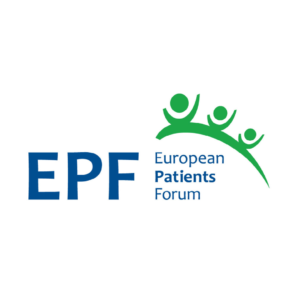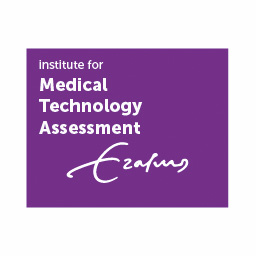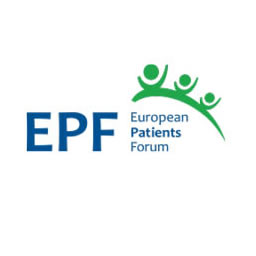All BLOG ARTICLES

Gender perspective and self-management interventions on chronic diseases: diabetes, obesity, COPD and heart failure
The success of SMIs can be measured by concepts such as self-efficacy, knowledge and quality of life. The barriers to achieving a healthier lifestyle can differ for men and women. Therefore, SMIs should be personalized to address women’s unique needs, and additional emotional and psychosocial support should be readily accessible.

Continuing support for self-management after the end of the project
COMPAR-EU has provided key resources for supporting self-management: a taxonomy of interventions, core outcome sets for the four chronic conditions built together with patients and providers; reviews and analyses of more than 1600 randomized control trials allowing comparison of the different self-management components effectiveness; cost effectiveness analyses and studies on the influence of context in developing self-management interventions (SMIs).

COMPAR-EU’s Final Advocacy Conference was a success!
The European Patients’ Forum hosted the COMPAR-EU Final Conference Advocacy Event from 15. – 16. November 2022 in Brussels.

Final Research Conference – Presenting key findings, the main product and having meaningful discussions
From 26-27.10.22 we organized our final research conference in Palma. Here we presented the key findings of our project, and we also launched the main product of our study, an innovative information technology platform featuring self-management tools. Leading researchers in the field held keynote presentations and young researchers presented their work in a poster presentation.

Workshop, hackathon, interviews: successful exchange with relevant stakeholders
To develop business plans for implementation of the COMPAR-EU platform, featuring decision-making tools about self-management, we conducted individual interviews with clinicians and managers in Germany and Spain.

Full steam ahead – the EPF team prepares for a successful end of COMPAR-EU (2018-2022)
As the COMPAR-EU project heads into its final months, project partners from the European Patients’ Forum share what is in the pipeline for patient engagement, including special news

COMPAR-EU Evidence to Decision frameworks (EtDs): a tool for stakeholders
A key step of COMPAR-EU is the development of interactive tools to facilitate decision-making for different stakeholders and scenarios.

Headroom analysis as a method to estimate the potential for a cost-effective implementation of self-management interventions
The COMPAR-EU project aims to rank the most (cost-)effective interventions for self-management. To estimate the cost-effectiveness of self-management interventions (SMIs) health economic models were used to predict the lifetime health benefits and (healthcare) costs for a scenario assuming one-time implementation of a SMI in comparison with a scenario assuming care as usual.

Qualitative interviews to facilitate a smooth transition from the evidence of self-management interventions to practice
Patients and health care professionals can use self-management interventions (SMI) to improve patient outcomes if there are decision-making tools that structure and facilitate the use of evidence in practice.

Self-Management Europe has great ambitions!
Around one year ago, we started the design and development of the European Research and Innovation Centre on patient empowerment and self-management: Self-Management Europe (SME). Our ambition is to become a central place for health care professionals, policymakers and patients to look for knowledge and evidence on self-management interventions and empowerment and to share information and experiences on these topics.

Available tools and challenges encountered when interpreting results from sparse networks of multicomponent interventions
Assessing the efficacy of self-management interventions (SMIs) is challenging due to the multicomponent nature of these interventions. Networks of multicomponent interventions are usually sparse and the little flow of information across the network compromises the traditional interpretation of network meta-analysis (NMA) results. We briefly discuss the available tools and the challenges encountered when interpreting results from sparse networks of multicomponent interventions .

Development and user-testing of a web-based patient decision aid for self-management interventions
Decision aids are tools that can be used by clinicians and patients to support shared decision-making about health care options. COMPAR-EU decision-aids are interactive web-based tools and are available in several languages.

Managing my Type 2 Diabetes: personal patient story of a successful journey
‘’So far, I have shed 18 kgs and reduced insulin by 89%,’’ shares Nora Macelli. Read more to learn about how Nora was motivated to make a change through self-management, and why she is involved in the COMPAR-EU Patient Panel

Applying incentives to adopting shared decision-making with patient decision tools
Individuals and organizations can participate in shared decision-making with patient decision aids if there are sustainable incentives that motivate them to use them in routine clinical care.

Longevity gains and postponed informal care with self-management interventions?
The burden posed by a disease not only affects the sufferers, but also their relatives. Therefore, it is important to adopt a societal viewpoint when deciding which kind of costs and health benefits to include in an economic evaluation.

Online self-management enhancing interventions; lessons learned to bear in mind
Even before we were confronted with the current pandemic, numerous online interventions to improve self-management were developed, evaluated and in some cases successfully implemented. In this article, I review some self-management enhancing PhD-projects and show how the actual usage (uptake) and implementation of our carefully developed interventions turned out there.

COMPAR-EU Patient Panel Activities – 2021 Mid-Term Review
European Patients’ Forum (EPF) is a COMPAR-EU project partner, tasked with ensuring that patient centricity remains at the heart of the project’s activities, objectives, and future endeavours. In this edition, EPF shares what has been achieved so far in 2021 and highlights immediate next steps, mainly in connection to the work carried out by members of the Patient Panel.

Patient Decision Aids for Self-Management Interventions
Patient decision aids (PDAs) have been developed to enable people to be more involved in decisions and plans about their care. We briefly explore some of the key drivers and barriers to their adoption.

Prolonging lives with self-management
COMPAR-EU aims to rank the most (cost-)effective interventions for self-management and provide relevant research supporting this aim. In two recently published papers we provide standardized methods for the inclusion of future costs in cost effectiveness analyses, in the Netherlands [1] and England and Wales [2] respectively.

A new year for patient empowerment and self-management: 2021 plans and opportunities!
The European Patients´ Forum (EPF) is a COMPAR-EU consortium partner, tasked with ensuring that patient centricity remains at the heart of the project’s objectives. In this blog, EPF shares its 2021 plans to continue eliciting patient priorities and preferences, mainly through its work with the Patient Panel, among many other engaging activities that lie ahead.

Helping decision makers making informed judgments: COMPAR-EU decision-making tools
After estimating the relative merit of self-management interventions, COMPAR-EU is developing different interactive tools to facilitate decision-making for different stakeholders and scenarios. We briefly outline three key interactive tools that will be available in a web-based platform in early 2022.

Exploring what self-management characteristics work (or do not work)
Network meta-analysis is tailored to deal with multicomponent interventions such as self-management interventions. We briefly discuss the challenges of analyzing multicomponent interventions and the benefits and limitations of two approaches (standard network meta-analysis and component network meta-analysis).

Climbing the Eiger at 60?
Changes in my lifestyle have transformed my life and made it possible for me – a 60-year-old woman with chronic illness – to climb the Eiger.

Fostering Shared Decision-Making through the use of Electronic Health Records
Patients can participate in a shared decision-making process about their health if they have access to relevant health information. Electronic health records have the potential to support SDM at every stage of the process.

How can community health care contribute to self-managing health?
Community health care can complement professional help. Positive effects can come from a sense of belonging. Cristina Spoiala explains how community health care can contribute to self-managing health.

On the self-management of three chronic conditions – a story of perseverance
Successfully self-managing a chronic condition can be challenging. In this blog, Raymond Nangle, patient advocate, shares his experiences on the significant challenges he has overcome to self-manage three chronic conditions.

It is time that self-management and associated concepts become the default position of health care systems
Self-management and self-care have been part of policy in many European health care systems for many years now. The NHS in England has now adopted a comprehensive model to make self-management part of everyday care. Jim Phillips, Executive Director for CEmPaC (www.cempac.org), who oversaw the implementation of the NHS Expert Patient Programme shares insights from the NHS and reflects on 20 years of development in the NHS.

The importance of self-management support in times of COVID-19
It is of paramount importance to call stakeholders to action at macro-, meso-, and micro-levels to promote and support self-management as a base strategy in health planning for coping with COVID-19 during and after the lockdown periods.

Self-management, a challenge for people with low health literacy that needs tailored action
Poor health literacy is shown to negatively affect people´s capacity to self-manage diseases. Monique Heijmans highlights the importance to improve health literacy and how COMPAR-EU aims to respond to health literacy problems.

The integration of patients’ perspectives in self-management interventions research: why and how?
Healthcare requires the integration of patients’ values and preferences. In COMPAR-EU, we are applying different methods to include the patients’ perspective all alongside the different stages of the project. Ena Niño de Guzman explains the importance of including this type of evidence, the methodology applied until now, and how these aspects will be incorporated.





